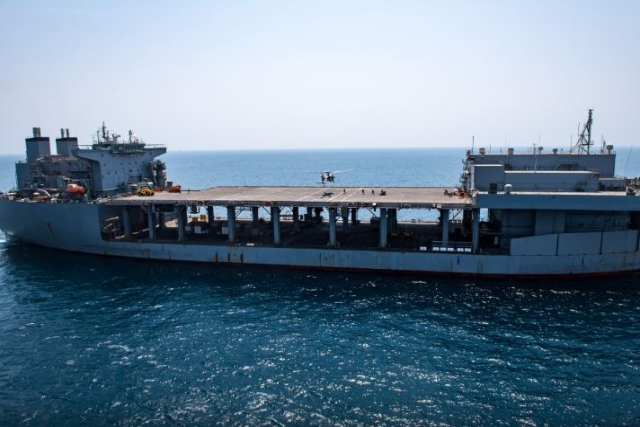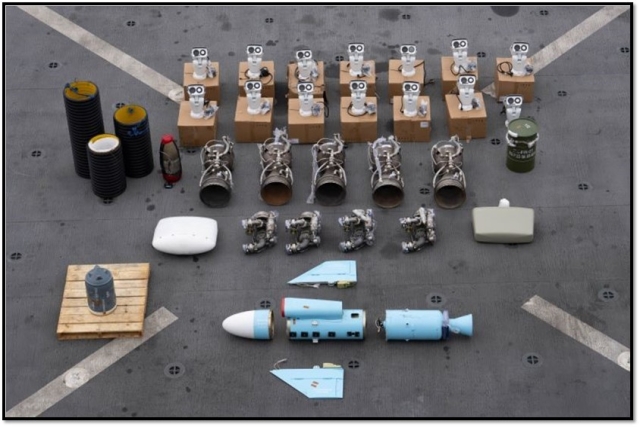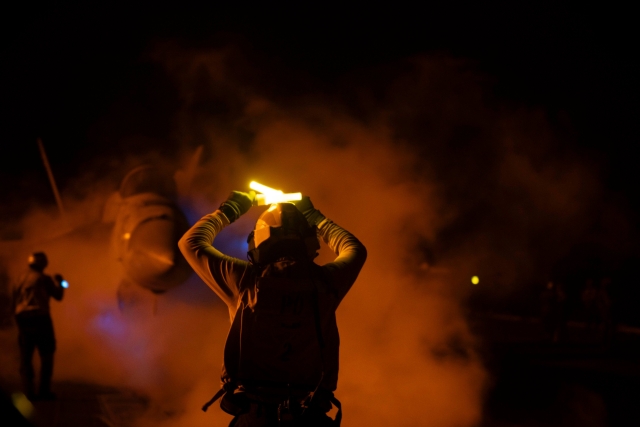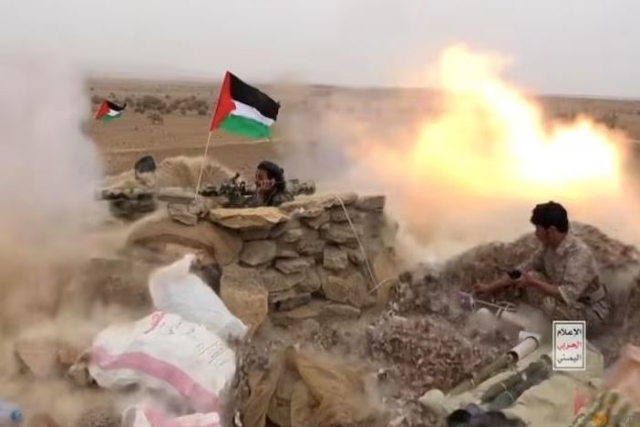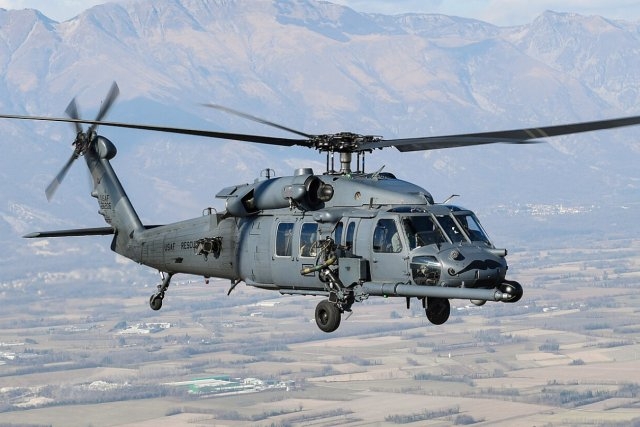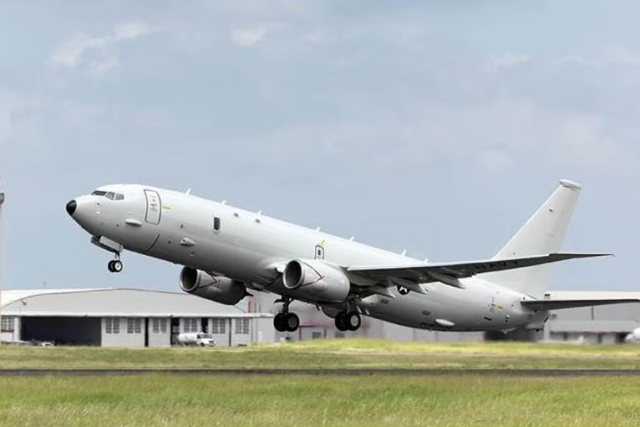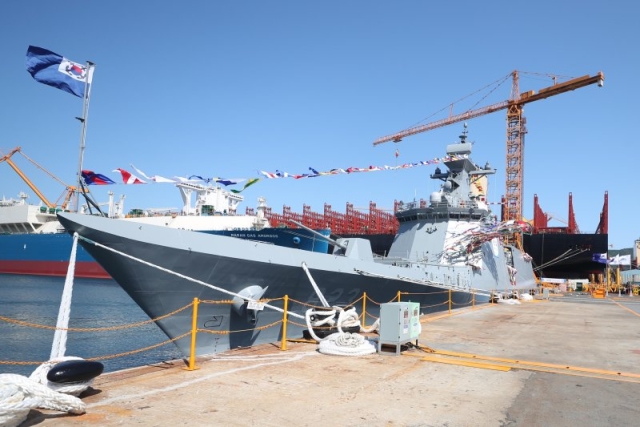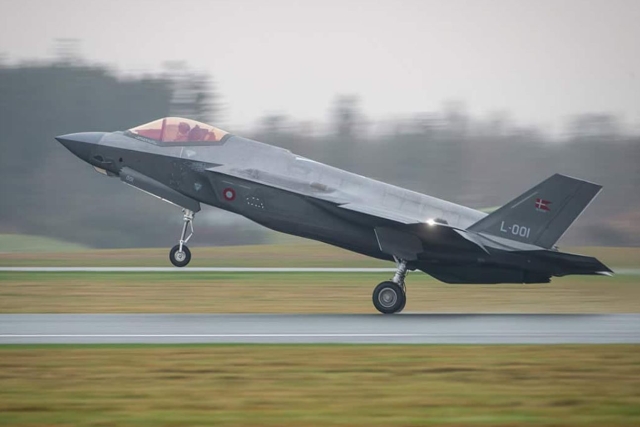U.S. Forces Intercept Houthi Missiles Amid Rumors of Iranian Targets in Crosshairs in Syria, Iraq
Head of the CIA, William Burns, has characterized the situation in the Middle East as the most explosive in the last 40 years
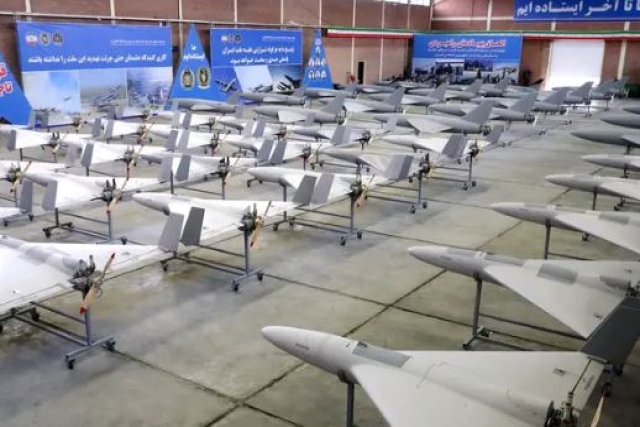
The U.S. Central Command forces intercepted and neutralized emerging threats in the Gulf of Aden and the Red Sea on Feb.1, heightening tensions in the region amid speculations of prospective strikes on Iranian targets in Syria and Iraq.
Around 5:00 a.m. (Sanaa time), U.S. Central Command forces engaged and successfully downed an unidentified unmanned aerial vehicle (UAV) over the Gulf of Aden, with no reported injuries or damages in the initial encounter.
Later that day, at approximately 10:30 a.m. (Sanaa time), U.S. forces executed targeted strikes, demolishing an Iranian-backed Houthi explosive uncrewed surface vehicle (USV) in the Red Sea. The USV posed an imminent threat to merchant vessels and U.S. Navy ships in the international shipping lane. The self-defense operation resulted in significant secondary explosions, causing no reported injuries or damage.
Two anti-ship ballistic missiles were launched from Houthi-controlled areas in Yemen later, seemingly targeting the Liberian-flagged cargo ship M/V Koi in the Red Sea. Fortunately, the missiles impacted in the water, averting any harm to the ship or coalition vessels in the area.
In response to these incidents, the United States is taking precautionary measures, with reports suggesting Tehran's withdrawal of troops from the T-4 airbase in Homs, Syria, anticipating potential attacks from U.S. and coalition forces. Simultaneously, the U.S. is evacuating personnel from its embassy in Baghdad, amid growing concerns of potential attacks on Iranian targets within the next 48 hours.
The U.S. is also said to be deploying additional air defense systems at the Rukban base in Jordan, previously targeted by drones of pro-Iranian groups. Tehran has denied involvement in the attack on the Rukban base. The region is witnessing heightened military activities, including active engagement by British and American transport aviation.
Head of the CIA, William Burns, has characterized the situation in the Middle East as the most explosive in the last 40 years, underscoring the gravity of the unfolding events. Analysts speculate that Washington's response to the Rukban base attack could involve strikes on Iranian personnel in Iraq and Syria, potentially escalating into a larger regional conflict.
Iran has hinted at potential retaliation through the activation of Hezbollah against Israel and the forces of the Western coalition, amplifying concerns about the possibility of a broader and more intense conflict in the already volatile region.
